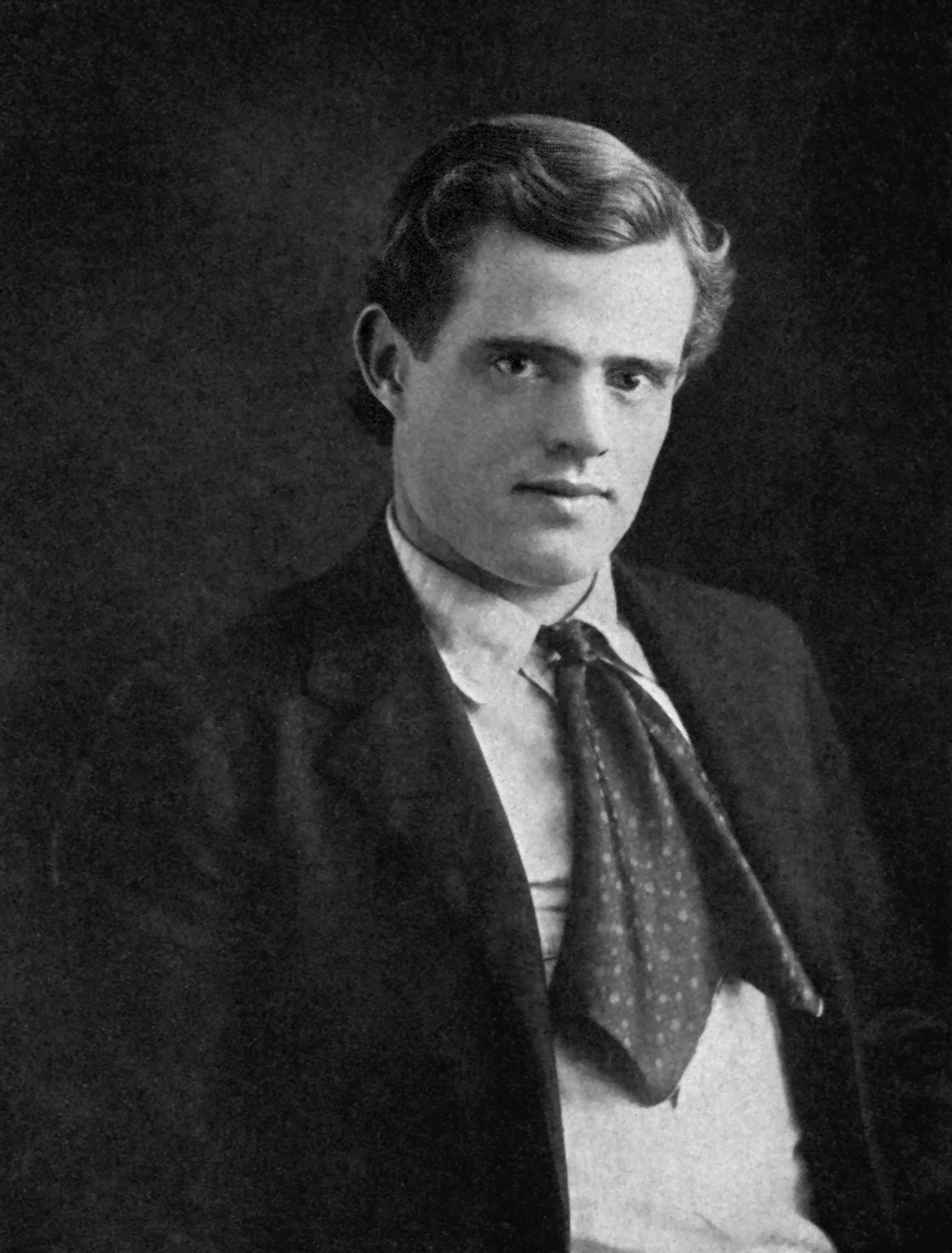
Jack London
John Griffith Chaney[1][A] (January 12, 1876 – November 22, 1916), better known as Jack London,[2][3][4][5] was an American novelist, journalist and activist. A pioneer of commercial fiction and American magazines, he was one of the first American authors to become an international celebrity and earn a large fortune from writing.[6] He was also an innovator in the genre that would later become known as science fiction.[7]
For other people named Jack London, see Jack London (disambiguation).
Jack London
John Griffith Chaney
January 12, 1876
San Francisco, California, U.S.
November 22, 1916 (aged 40)
Glen Ellen, California, U.S.
- Novelist
- journalist
- short story writer
- essayist
The Call of the Wild (1903)
White Fang (1906)
The Iron Heel (1908)
Martin Eden (1909)
Joan London
Bessie London
London was part of the radical literary group "The Crowd" in San Francisco and a passionate advocate of animal rights, workers’ rights and socialism.[8][9] London wrote several works dealing with these topics, such as his dystopian novel The Iron Heel, his non-fiction exposé The People of the Abyss, War of the Classes, and Before Adam.
His most famous works include The Call of the Wild and White Fang, both set in Alaska and the Yukon during the Klondike Gold Rush, as well as the short stories "To Build a Fire", "An Odyssey of the North", and "Love of Life". He also wrote about the South Pacific in stories such as "The Pearls of Parlay" and "The Heathen".
War correspondent (1904)
London accepted an assignment of the San Francisco Examiner to cover the Russo-Japanese War in early 1904, arriving in Yokohama on January 25, 1904. He was arrested by Japanese authorities in Shimonoseki, but released through the intervention of American ambassador Lloyd Griscom. After travelling to Korea, he was again arrested by Japanese authorities for straying too close to the border with Manchuria without official permission, and was sent back to Seoul. Released again, London was permitted to travel with the Imperial Japanese Army to the border, and to observe the Battle of the Yalu.
London asked William Randolph Hearst, the owner of the San Francisco Examiner, to be allowed to transfer to the Imperial Russian Army, where he felt that restrictions on his reporting and his movements would be less severe. However, before this could be arranged, he was arrested for a third time in four months, this time for assaulting his Japanese assistants, whom he accused of stealing the fodder for his horse. Released through the personal intervention of President Theodore Roosevelt, London departed the front in June 1904.[49]
Animal activism
London witnessed animal cruelty in the training of circus animals, and his subsequent novels Jerry of the Islands and Michael, Brother of Jerry included a foreword entreating the public to become more informed about this practice.[66] In 1918, the Massachusetts Society for the Prevention of Cruelty to Animals and the American Humane Education Society teamed up to create the Jack London Club, which sought to inform the public about cruelty to circus animals and encourage them to protest this establishment.[67] Support from Club members led to a temporary cessation of trained animal acts at Ringling-Barnum and Bailey in 1925.[68]
The Jack London Online Collection